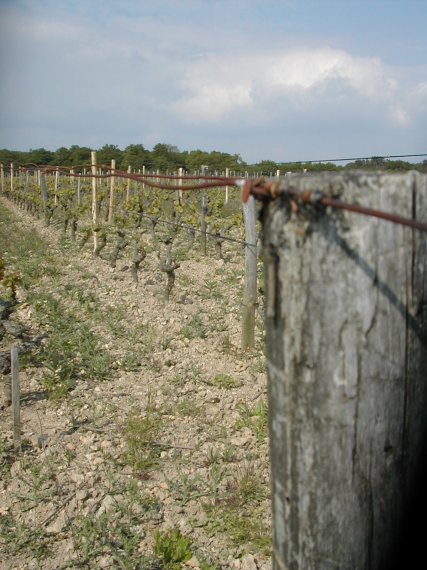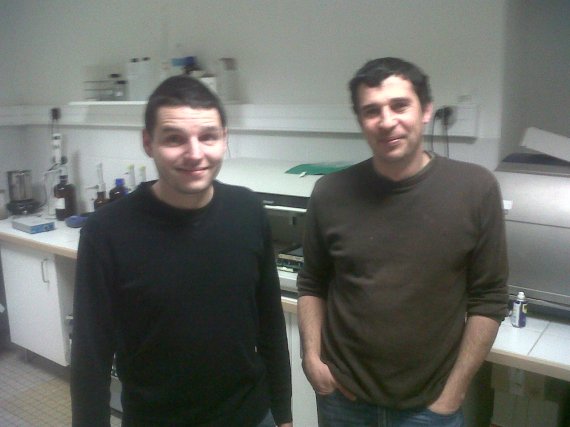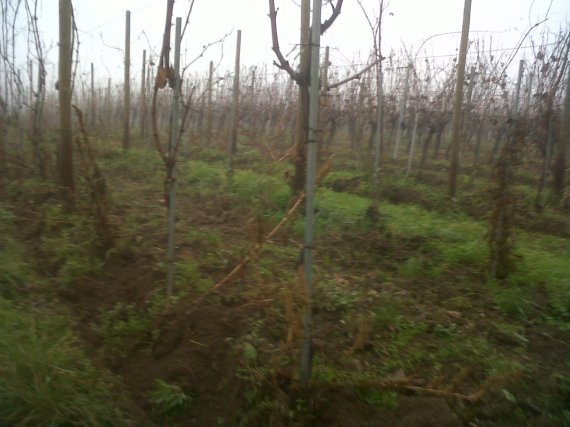-
THE OENOLOGISTS / WINEMAKERS
THE OENOLOGISTS… as seen by a professional taster with a green heart
Born in 1955, first called ‘wine doctor’, the oenologist made the wine become a standardized product. Some people found it a great positive step, but not everyone. Pierre-Marie Doutrelant for instance, wrote in his book ‘The good wines and the rest’ in 1976: “when the oenologist supplanted the cellar master, technicality killed the genius”.
A necessary requirement
Behaviour guidelines during the vinification, a perfectionist method, a professional touch… those were the factors which leaded to the emergence of the oenologist. This was indeed a necessary requirement for our wine growers.
Negative image
This image of the oenologist busted in Mondovino: Michel Rolland was featured as a ‘Chemist God’, commanding the wine growers by phone from his De Luxe sedan… The ‘winemaker’ became an unrealistic caricature, turning to an almighty organizing the standardization of the taste.
“The oenologist is like an unmarried old maid trying to teach you how to make love while she actually knows absolutely nothing about it” These sharp words came from a ‘natural’ wine grower, are they still appropriate?
The oenologist is just someone who adapted his/her work to the emergence of chemicals at the end of the 60’s. In fact, with this emergence, the first consequence was the nullification of the microbial life. Later, the use of selected extern yeasts became necessary to counteract the bad starts of fermentations.
Reality
You will not find so much oenologists pleading for good agricultural and healthy practices. Since the relatively recent opening of the ‘natural wine’ chapter and the emergence of the organic agriculture, the debates about it are increasingly scathing:
- The use of selected industrials yeast standardized the wines
- Natural wine doesn’t exist
- The vinification of organic/bio wines is much more difficult
- Oxidative and bitter notes are defects
- You can produce real terroir wines with selected industrial yeasts
Those are some of the arguments used by the different protagonists. Like a tsunami of words, they submerge the whole good old France who, sick of its wine, rather opts for an immoderate absorption of medical drugs and for guzzling away soft-drinks instead of enjoying Bacchus nectar. (* see in the Dico du Vin Naturel).
Most oenologists are tightly focused on wines with intrinsic and stiff neatness. I always compare the ‘oxidative side’ (and not the oxidation process) as a grey hair or cute wrinkles of forty-years-old people. The oenologist would tell you then as a friend to dye your hair or have some plastic surgery.
Awareness
I am pretty conscious that the oenologist is important for the wine profession. It would however finer if he was humble and open to the opinion of the wine grower. I heard so many times organic wine growers loudly stating: “I didn’t listen to the advices of my oenologist, and my wine is perfectly all-right”.
The most important part is a healthy condition of the grapes… in order not to affect the wine too much. The oenologist should insist on this primordial result. The wine world went too far with these clonal vines “totally addicted to chemicals”, as some organic wine producers describe them. The vineyards from mass selection are part of the French ‘terroir’. Look at the fantastic wine house Drouhin for instance; they do own their own kindergarten.
Since a few years, de natural wines became an exciting reality. There are two big styles of wine in the world:
- Mouth feeling style: no retro-olfaction in the wines (caused by selected industrial yeasts)
- Spiritual style: very obvious retro-olfaction thanks to the symbiosis of organic/bio agriculture and vinification with wild ferments
Listening to the wine grower and clients
A few years ago, I tasted some Saint-Émilion wines from a well-known château. Short before the sister of the previous wine grower took over the domain. She was present on that very day. I noticed the difference between her wine and her brother’s wine: the use of yeasts!
“You use selected yeasts, Madame”
“Yes of course” she answered “why do you say that to me?”
“It is less complex on the nose; there is no mineral retro-olfaction”
“What a nonsense” she reacted firmly “my brother makes wines from a very mineral terroir. It is the terroir which makes the difference. Not the ferments! I happen to be an oenologist, sir, who are you to tell me that?”
Well, being a sommelier doesn’t give me the right to be the best of the class or to be a fool. Wisdom is the fruit of experience, experience the fruit of stupidities. In the La Méditerranée restaurant, I learned to listen to the clients and to give them the best of myself. I am not an oenologist, but I could be his/her best friend. I am blessed with a nose and mouth which are very sensitive for sulphur and other additives, and my memory is quite impressive. We are very few in France able to make the difference between wines made with selected yeasts or wild ferments.
This lady is a testimony that the listening ability of some oenologists can be nil. And this is bothering me. During the oenologist day at the French parliament (October 20th) I was polite not to react to a reflexion I heard: “the vinification of organic/bio wines is more difficult and they need a constant follow-up”. Many wine growers have been through all the different stages (conventional, integrated (pest-) management, organic/bio). They can assure you that it is much easier to manage a vinification in organic/bio viticulture than in a conventional one. Working organic/bio gives the grapes a healthier condition and maturation. But of course you need sulphur to avoid risks.
On this very October 20th, I liked the intervention of a president about the need for the oenologist to listen to the wine grower but also to the clients.
- The oenologist must propose more wines to the wine grower, including a commercial wine for the cash-flow and a terroir wine for the spearhead image of the wine house.
- If a wine grower works with organic/bio viticulture, why should an oenologist advise the use of selected yeasts? In his book published in 1919, L. Mathieu, manager of the Burgundy oenology centre preconized the use of pre-batches of natural yeasts from the best grapes. There is definitely a difference between wines produced with selected yeasts and the ones produced with wild ferments. The whole wine profession should recognize that.
Playing both ends against the middle
Finally, those passionate oenologists with such a difficult job should absolutely show the right direction to the wine growers. They should interfere in the conventional wine world, pointing out that using too much chemicals unbalances both fauna and flora. Fewer chemicals on their vines would give a healthier crop. In the organic/bio world, their intervention should be minimalistic. Why not, if necessary, ask the wine grower to sign a remission letter when the wine grower doesn’t agree with the advice (for example when a producer doesn’t want to use the advised quantity of sulphur).
In these times of economic crisis, the whole viticulture chain should be unified despite all differences: oenologists, sommeliers, wine growers of all kinds, natural, conventional, artisan, industrial… Our wine culture must stay alive; only together we can raise the wine consumption in France, not abusive alcoholic, but conscientious and educative. It is time to forget our big egos and start a together.
Jean-Charles Botte translated by Christian CallecDuo oenologie (last picture) : they are two winemakers who specialize in natural and organic wine. They advise winegrowers to use natural yeast
-
THE OENOLOGISTS / WINEMAKERS

- Organic farming
- Loire: the forgotten of Robert Parker
- The term organic wine in europe
- Buccal wine and spiritual wine
- Different styles of wines in the world
- Travel through the organic vineyards
- the rosé wine
- THE OENOLOGISTS / WINEMAKERS
- My tasting
- Old vintages: how to know if ...?
- Natural wine
- Local Grappe
- Glug Glug wine what is it ?????
- Edition
